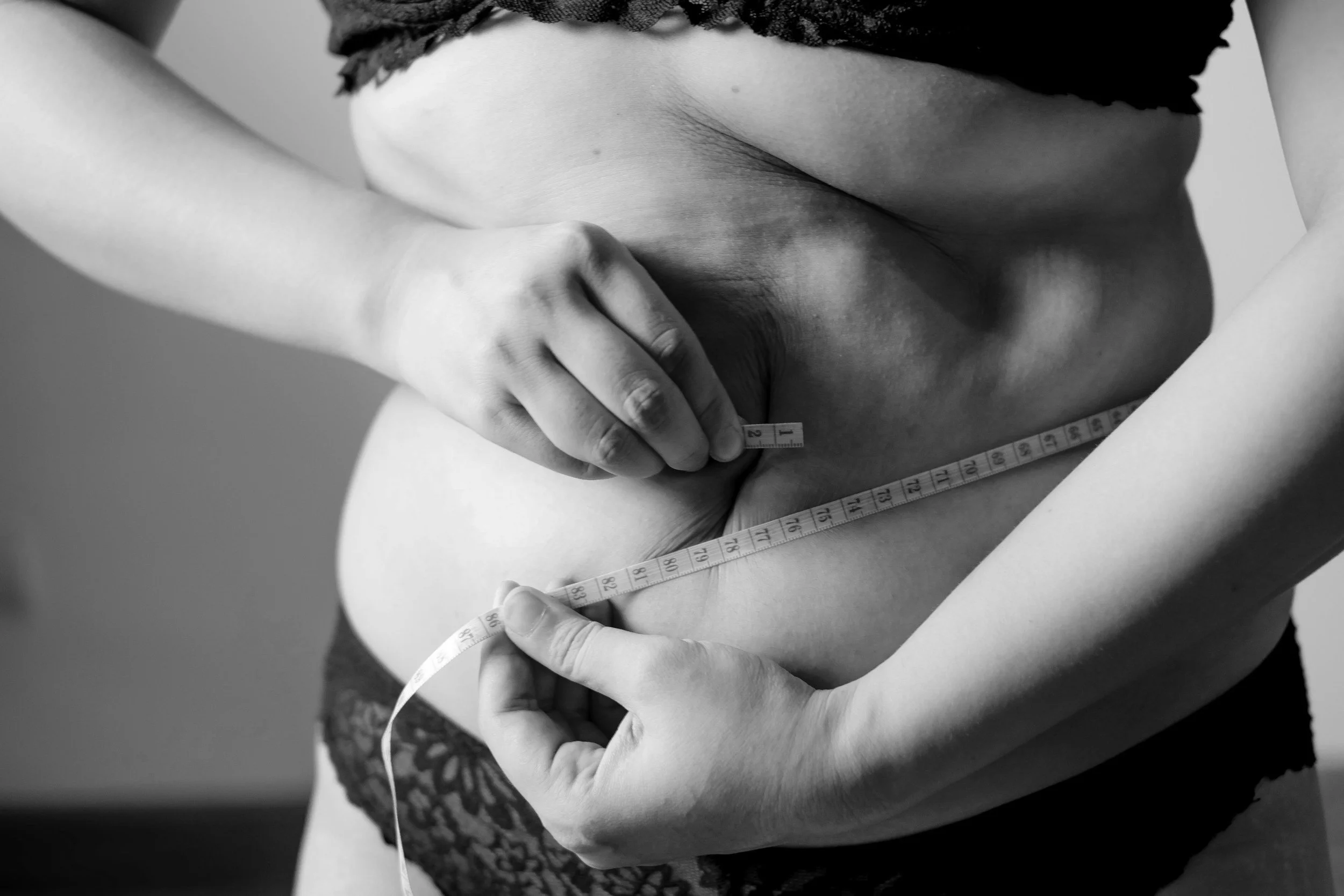Why Losing Weight in Midlife Feels So much harder
Let’s be real…
When the jeans start feeling tighter and the scale won’t budge, it’s easy to think, “What’s wrong with me?”
You’re eating healthy. You’re moving. You’re doing the same things that worked in your 30s and yet, nothing’s changing.
Here’s the thing: it’s not you. It’s what’s happening inside your body.
Your Hormones Have Shifted and That Changes Everything
When estrogen and progesterone start dropping (thank you, perimenopause), your body reacts differently to food, stress, and exercise. You don’t handle carbs as easily. You recover slower. And the muscle you used to have? It starts to fade unless you work to keep it.
So even if you’re eating the same way, your body’s needs aren’t the same anymore.
It’s not about cutting more — it’s about supporting what’s changing.
Eat Less, Move More” Isn’t Cutting It Anymore
That advice used to work because your metabolism was running on more muscle and higher hormones.
NOW! Eating too little can actually make things worse. Your body starts saving energy instead of burning it. Hello- fatigue, cravings, and stubborn fat.
Most women I work with aren’t overeating. They’re under-fueling. Especially protein. Once you start eating enough (and regularly), your energy, recovery, and results all improve.
Muscle Loss Is a Sneaky Culprit
We lose muscle faster than we realize - especially after 40. And since muscle burns more calories at rest, losing it means your body just doesn’t need as much food to maintain weight. That’s why “doing more cardio” often backfires.
So what helps?
Strength training.
Lifting progressively heavier over time, not random high-rep burnout sessions.
Muscle keeps your metabolism strong, shapes your body, and helps regulate your blood sugar and hormones.
Stress and Sleep Matter More Than You Think
You can be eating perfectly and still feel stuck if your stress and sleep are a mess. When you’re constantly running on empty, cortisol stays high and that’s when belly fat, cravings, and irritability creep in. Some nights of poor sleep won’t ruin you. But weeks of it, your body feels the impact (trust me)!
If you’re exhausted, start there before changing anything else.
You Don’t Need More Willpower - You Need Better Information
Weight gain in midlife doesn’t mean you’ve lost control. It means your body has changed, and the old “rules” don’t apply anymore. Once you understand that, you stop fighting it. You train to keep muscle. You eat to support energy. You rest when your body needs it. It’s not time to give up, it’s time to get smart about it.
A Few Things That Actually Help
Aim for 25–30g of protein at each meal
Strength train 3–4 days a week
Walk daily (not for fat loss, but for health)
Get your sleep in check
Eat enough to fuel your workouts
These might sound basic to you, but when you do them consistently, they change everything. Your energy, your mood, your shape, all of it.
If you want more details on how to eat for your 40s and 50s, check out this post: What I Wish I Knew About Nutrition in My 40s
Or grab my free guide - Strong & Balanced Macros to learn how to fuel your body without restriction.

